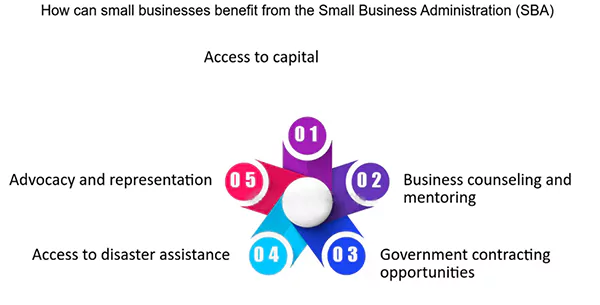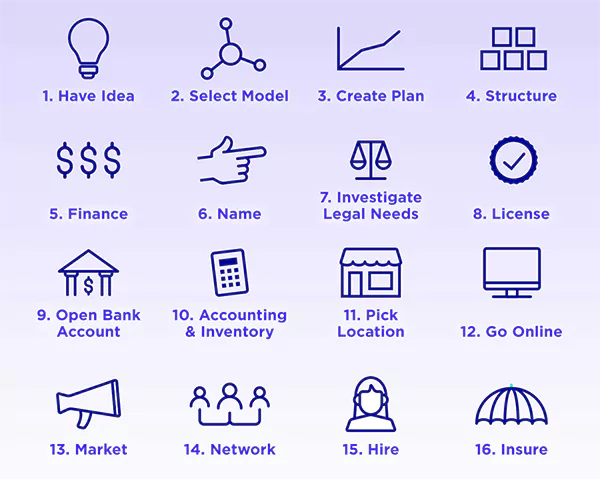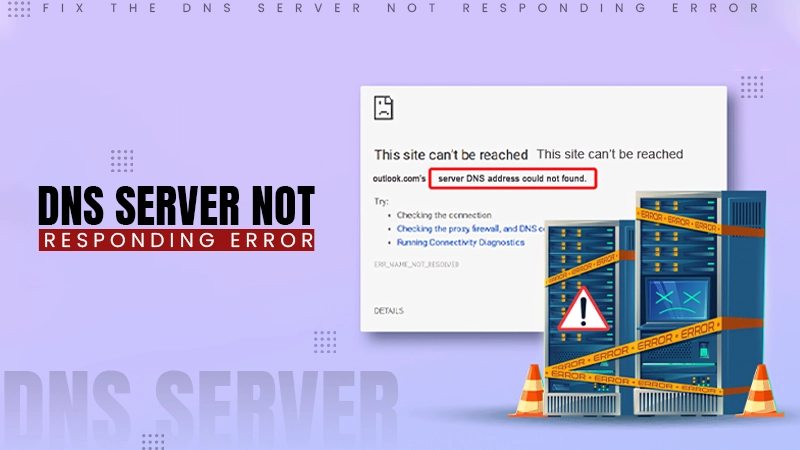Guide for Starting and Growing your Small Business in Atlanta
The Greater Atlanta area touts a population of more than 6.9 million and has earned a reputation as a business-friendly city. It is the second most densely populated metropolitan region in the country.
It includes 39 counties in Northern Georgia and even one across the border in Alabama, covering more than 8,300 square miles.
Home to upwards of 31 Fortune 1000 companies’ headquarters, it also supports a thriving small enterprise base. More than 43 percent of Georgia residents are reportedly employed by new companies.
Metro Atlanta’s population density and diverse workforce make it a lucrative environment for entrepreneurs to launch an enterprise.
But like any unfamiliar landscape, innovative thinkers can streamline the process by knowing how to form a relatively new start-up in Atlanta, identifying available opportunities, and tapping unique benefits.
If you are considering starting a new venture, these are things to know about Atlanta. Also, learn about Small Business Consulting with this guide.
Things to Consider About the Atlanta Business Landscapes:
In 2023, Peach State broke its record for capital investment for the third consecutive year, injecting a reported $24 billion into more than 400 infrastructure projects. Nearly $4 billion was earmarked for improvement in the Greater Atlanta area alone.
That brought Georgia’s annual investment up by 131 percent over three years.
For someone seeking the right location for a new business, it seems abundantly clear that officials have big plans for financial growth in Atlanta and the Peach State at large.
It’s also significant to note that the unemployment rate there is consistently lower than the national average.
Benefits of Opening a Small Business in Atlanta:
Open arms to onboarding new products and services, this region provides plenty of resources for early-stage start-up professionals to gain a solid footing in the metropolitan landscape.
For entrepreneurs creating a company there, these are things that can provide direction and support.
The Small Business Administration (SBA)

The SBA has an office at 233 Peachtree St. NE, in Atlanta. Upstart companies can apply for wide-reaching aid such as SBA loans. Lending products that can be secured through the SBA in this city include 7(a) loans, 504 loans, and Microloans, among others.
Do You Know?: The Staffing Industry Analysis Survey revealed that CFOs residing in Atlanta are likely to look at full-time employment growth increase by just under 4% in 2024.
The 7 (a) loan program provides potential lenders with a guarantee that allows them to issue newly formed firms funding up to $5 million.
Money can be used for real estate purchases, improvements, working capital, managing commercial debt, and other corporate-related needs.
The SBA also helps with its 504-loan program of up to $5.5 million. This option guarantees fixed-rate borrowing designed to promote growth. The program works in conjunction with Certified Development Companies to create job opportunities.
Microloans have been a hot-trending pathway to money-making growth and success.
The Atlanta branch of the SBA offers funding to “specially designated intermediary lenders.” These non-profit lenders enjoy deep roots in the community and can let budding entrepreneurs borrow up to $50,000.
The Atlanta Business Alliance (ABA)
It is designed to provide networking and mentorship opportunities, the ABA holds regularly scheduled forums to exchange ideas about financial growth and take advantage of emerging opportunities.
Joining and attending networking events helps newly minted firm owners build professional relationships.
Urban League of Greater Atlanta Entrepreneurship Center
The Urban League has been helping to empower African-American company owners for a century.
Along with community-oriented services such as housing, education, professional skills, and financial literacy, the Urban League offers entrepreneurs one-on-one coaching, entrepreneurship classes, and financial resources.
Invest Atlanta
A sanctioned economic development authority for the City of Atlanta, this organization consists of the Urban Residential Finance Authority, Downtown Development Authority, and the Atlanta Economic Renaissance Corporation, among others.
It connects local, nationwide, regional, and global companies with non-profits, government agencies, and sources of funding.

Statistics: The graph mentioned above demonstrates the GDP of the Atlanta metro area in the United States from 2001 to 2022. Therefore, in 2022, the real GDP of the Atlanta metropolitan area amounted to 455.33 billion U.S. dollars.
It accomplishes its economic prosperity mandate by educating entrepreneurs about the city’s demographics, opportunity zone tax credits, incentives, loans, and site selection resources.
Atlanta Small Business Development Center
Another organization dedicated to supporting new ventures and startups, offers mentorships, individualized coaching, and step-by-step support to get a company up and running.
Chambers of Commerce
There are also three chambers of commerce to consider, depending on which county you establish the enterprise. The Metro Atlanta Chamber and Georgia Chamber are located on Peachtree Street. The Cobb Chamber of Commerce is located in the same city at 1100 Circle 75 Pkwy.
Workforce Recruitment
Startups that need skilled, and even unskilled labor can find suitable employees through the Georgia Department of Labor’s Employer Page. It also provides valuable information regarding tax credits, incentives, and a Frequently Asked Questions page that may prove helpful.
How to Open a Small Business in Atlanta?

Registering with local agencies is just one part of establishing your legal entity. You may have to interact with local governments and private vendors to set up your line of work. To help you navigate through this process, key steps are outlined below.
However, each owner’s process will vary, as it depends on the type and other factors.
Write a Business Plan
When writing a plan, it’s necessary to keep in mind it will likely evolve. It should be backed by hard data and market research that concludes you can provide a product or service better or less expensively than competitors.
These are must-have elements of a smartly crafted operational plan.
- An executive summary
- Description of the organization
- Market research
- List of goals
- Methods to achieving financial goals
- Revenue projections
The plan outlines your short- and long-term financial goals. More importantly, it provides a roadmap detailing how to achieve them.
Consider Business Assistance and Training
Innovative thinkers often have great ideas about products and services. What many lacks is how the so-called “system” works and ways to navigate it. This city offers a wide variety of resources for entrepreneurs, such as Invest Atlanta and the Small Business Development Center, among others.
Consider signing up for one-on-one coaching, pertinent seminars, and attending key networking events.
Secure Funding
Amassing enough money to fund a startup can make or break a venture. It takes time and effort to build a customer base and even longer to turn a profit. New start-ups typically have a negative cash flow for an extended period.
On average, small firms need two or three years to become fully profitable.
The U.S. Chamber of Commerce recommends that startups have upwards of six months of cash on hand to cover operational expenses.
Fortunately, you may be able to get funding via SBA loans, angel investors, and by tapping savings and retirement accounts.
Choose a Suitable Location
Cities, towns, and counties generally have a long-standing zoning plan that indicates where certain entities can operate. It may be prudent to confer with the City of Atlanta Zoning Enforcement Division to acquire a map that shows where companies like yours can open.
After that, conduct due diligence about the population, income levels, and unique issues that pertain to your enterprise.
If your operations deal in impulse purchases or offer a select service, location plays a pivotal role.
Register Your Business Name or DBA
There, companies are required to register their name with the Georgia Office of the Secretary of State. If this is your first time filing a moniker, keep in mind you can also use a “Doing Business As” name.
Fast Fact: According to UGA’s Small Business Development Center, Georgia small businesses make up 99.6% of all businesses in the state. This also employs 1.7 million people which is about 43% of all Georgia employees.
Make a list of your business names that are likely to resonate with clients and customers.
Then, run them through the Secretary of State’s Name Reservation Portal and find one that hasn’t already been taken. You can reserve a name for a nominal fee.
Secure a Federal Employer Identification Number
Getting an Employer Identification Number (EIN) is relatively painless. It can be secured online through the Internal Revenue Service (IRS). One caveat to know is the IRS platform gives you 15 minutes to complete the straightforward process.
After that, you’ll need to start all over.
Once you have an EIN, you’ll likely need to obtain a tax identification number from the Georgia Tax Center, as well as workers’ compensation, unemployment, and disability insurance.
Acquire Pertinent Business Licenses and Permits
Their officials run a tight ship, and you’ll need to obtain various licenses and permits. The first step is filing for a General Business License. You’ll need to provide a notarized E-Verify affidavit, SAVE Affidavit, a copy of a government-issued ID that includes a photo, and any necessary regulatory permits.
What Type of Business Structure Makes Sense for Startups?
In the backdrop of these tasks, it’s of the utmost importance to research and think about the type of corporate entity that best serves your needs. For the vast majority of entrepreneurs, forming an LLC is something you should consider.
These are three types of entities startups generally find appealing when filing with the Georgia Secretary of State’s office.
- Limited Partnerships: This type of entity allows the partners to invest in an operation without being liable for any mishaps. The entity does not necessarily pay taxes because the revenue flows through individual IRS filings.
- LLC: An LLC protects owners and investors from civil litigation. It also provides some enticing tax benefits for many operations. If you plan to own and operate a Limited Liability Company there, you’re required to gather and present documents.
That includes a valid name registration number, the name and address of the person filing for the LLC, the physical address of the enterprise, and the names of the key stakeholders.
Those registering from outside the state are tasked with hiring a registered agent to provide all of the above. Filing articles of incorporation is optional for LLCs.
- Corporations: Usually reserved for complex operations, corporations comprise shareholders, officers, and directors. This structure, like LLCs, protects the people involved from liabilities such as company debts.
For-profits pay taxes on earned income, and shareholders feel the pinch of Uncle Sam on any dividends they receive.
To say that it offers a wealth of opportunities for small enterprises would be something of an understatement. The metro area generated more than $455 billion in real gross domestic product in 2022.
That metric has improved every year from $277 billion in 2009, except for the pandemic that resulted in national business closures.








